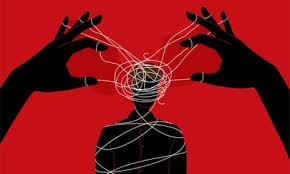Understanding and Treating Claustrophobia: Rewriting the Story of Fear
Claustrophobia is the experience of intense fear in enclosed or confined spaces, such as elevators, airplanes, MRI machines, tunnels, or small rooms. For some, even imagining being in such spaces can trigger physical and emotional distress. This fear can become so consuming that it interferes with one’s ability to engage in daily activities, maintain employment, attend school, or travel. Many people living with claustrophobia recognize that their fear may not align with the actual danger of the situation, yet they still feel powerless to change it.
As a therapist, I help clients begin to understand and reshape the narrative that has formed around this fear. Together, we work to reconnect with your values, calm the nervous system, and gently reclaim your sense of safety and choice.
What Contributes to the Development of Claustrophobia?
Claustrophobia often has roots in earlier life experiences. For some individuals, the fear may emerge after a specific traumatic event—such as becoming trapped or feeling suffocated. For others, it may develop through repeated experiences or by witnessing another person’s fearful response to enclosed spaces during childhood.
Narrative therapy invites us to explore these early stories and how they continue to influence current reactions. Through this process, we begin to externalize the fear and loosen its grip, allowing you to re-author a new, empowered relationship to space, safety, and control.
Recognizing the Symptoms of Claustrophobia
Claustrophobia can express itself through a variety of physical and emotional symptoms, including:
-
Heightened anxiety or panic
-
Chest tightness or shortness of breath
-
Chills or hot flashes
-
Confusion or trouble concentrating
-
Dizziness or lightheadedness
-
Dry mouth or upset stomach
-
Numbness or tingling sensations
-
Sweating, shaking, or a racing heartbeat
-
Ringing in the ears
These responses are not signs of weakness—they are your body’s way of trying to protect you. Through CBT and mindfulness, I help clients recognize these symptoms early, respond to them with compassion, and develop tools to restore a sense of calm.
How I Support Clients With Claustrophobia
Treatment for claustrophobia is not one-size-fits-all. My approach is personalized and collaborative, grounded in evidence-based practices and a deep respect for your lived experience. Some common and effective methods include:
-
Cognitive Behavioral Therapy (CBT): We explore how thoughts influence emotions and behaviors, and challenge the patterns that sustain fear.
-
Exposure Therapy: Also known as desensitization, this method helps you slowly and safely face feared situations, at a pace that feels manageable.
-
Mindfulness and Relaxation Techniques: Together, we cultivate grounding practices that strengthen your ability to stay present and self-regulate.
-
Narrative Therapy: We examine how claustrophobia may have shaped your identity and create space for alternative stories of courage, choice, and resilience.
-
Positive Psychology Tools: We highlight your strengths, reinforce moments of progress, and build a sense of hope and self-efficacy.
If You Are Struggling With Claustrophobia, You Are Not Alone
If claustrophobia is interfering with your ability to live fully, I invite you to reach out. As a therapist who supports clients with anxiety and phobias, I provide a safe and compassionate space to unpack the fears, rediscover your strengths, and build a life that feels more open and empowered.
You do not have to face this alone. Let us begin the work of transforming your fear into growth, and your story into one of courage.
Please contact me if you would like to learn more or schedule an appointment.




